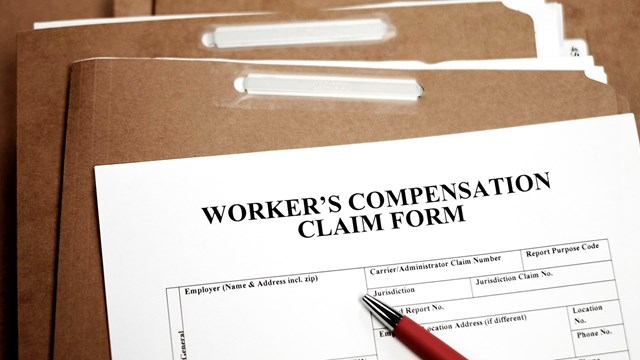Living in a co-op or condo means living in a community where residents get to know each other, attend events together and, sometimes, even become really close friends. In most cases, the people you meet are normal, down-to-earth folks, but as much as you think you know all of your neighbors, you can’t possibly know what’s going on behind every closed door.
Drugs, Inc.
When Margaret Lowery worked as an assistant property manager in Woodside, Queens, she was surprised about what happened in one particular unit. “We found out that the parents and sons were selling drugs out of the apartment,” she says. “There was proof on the video cameras that people were coming to the building for drugs. Even without the video, we could tell something was going on because of the extra foot traffic.”
The situation was more than just a nuisance; it turned tragic when one of the unit owner’s sons ultimately died of a drug overdose and the other went to prison. It seemed more like a scene out of “Breaking Bad” then a real life scenario.
“These situations happen all the time,” says Alvin Wasserman, director of asset management and human resources at Fairfield Properties in Melville. “I know of one shareholder who complained to the board that her downstairs neighbor was selling drugs, and it was attracting seedy outsiders to the neighborhood. Cars were coming on the property at all hours of the night, but the guests wouldn’t come into the building. Instead, the complaining neighbor claimed that they would walk to her neighbor’s deck, where ‘something’ would be exchanged.”
Some owners use their units for using, selling and making drugs, while others use it for something a little more lascivious. Dating back to the Prohibition era, Polly “Queen of Tarts” Adler ran a brothel at her condo in The Majestic at 215 West 75th Street. In the 1980s, “Mayflower Madam” Sydney Biddle Barrows ran her escort service out of her unit and just a few years ago, the “Soccer Mom Madam” Anna Gristina was busted organizing her business out of her Manhattan condo.
Behind Closed Doors
Illegal activity in condo or co-op units doesn't always take the form of drugs or prostitution—though the legal experts say those are two of the more common vices. In November 2013, professional poker player Vadim Trincher pleaded guilty to running an illegal sports-betting operation out of his 63rd-floor condo in Manhattan's Trump Tower. This wasn’t a penny-ante operation either. The New York Post reported that Trincher’s business was part of a $100 million gambling ring catering to high-rollers in Russia and the Ukraine as well as the United States.
Not all residents are involved in such dramatic, news-worthy misdeeds, however; some might not even realize what they are doing is illicit. Consider 'Mrs. Jones,' a licensed hairdresser, who cuts hair out of her unit to make some extra money. It might sound innocent enough—she’s a nice, hard-working lady who's using a marketable skill to make ends meet—but her unit isn’t zoned for a business, and she has customers coming and going at all hours, which is disturbing other tenants. Or consider Mr. Smith, who works as a personal trainer, and has customers coming in and out of his unit for nightly workout sessions.
Once the board, manager or even the residents get wind that there is some unsavory business going on in their building or HOA, it needs to be taken care of. “The board should report it to the police if it’s a serious offense, such as drugs or prostitution,” says Stuart Berg, Esq., a partner at the law firm of Kurzman Eisenberg Corbin & Lever, LLP. “Then, under the proprietary lease the board has the right to terminate the resident based on objectionable conduct.”
The moment the board gets an inkling that something is happening, John Schepisi, founding partner and president of the law firm Schepisi & McLaughlin P.A., with offices in New Jersey and New York, says to let the unit owner know that what they are doing is a possible breach of the proprietary lease or bylaws. “Then tell them it ‘appears’ that their business might be illegal and if it’s not terminated immediately they will be evicted,” he says. “The board should nip it in the bud or call the police.”
If there’s a complaint, it's the board's duty to address it. “The board should let the resident know that there was a complaint against them,” says Wasserman, “but keep in mind that people sometimes make claims that aren’t true.”
The board for Wasserman’s client suggested that she call the police and talk to her other neighbors about what was going on. She did, and kept calling the police when she saw something suspicious. “The police increased patrol in the neighborhood, but the problem is that they were never able to catch them doing anything,” says Wasserman.
Wasserman says that the board is responsible for the peaceful enjoyment of the shareholder’s homes. “Obviously, selling drugs interferes with that,” he says. “But if the board calls the police they’ll say, ‘How do you know this is what's going on? Did you witness it? Anyone can accuse anyone.”
Playing By the Rules
To prevent any illegal issues that may arise, the consequences for residents who are participating in illegal activities should already be outlined in the bylaws and proprietary lease. The proprietary lease and bylaws are rules and regulations that give authority to act and uphold the rights of neighboring apartments.
“Almost every set of bylaws has a provision saying that the owner or shareholder will not violate any governmental laws,” says attorney Adam Leitman Bailey, founding partner at the law firm of Adam Leitman Bailey PC in Manhattan. “If they do, both condos and co-ops have the power to penalize and evict.”
However, before the board starts any process to have a resident evicted from the building, they will actually need concrete proof that the resident is engaged in wrongdoing.
“For example, if you think someone is hosting a prostitution ring out of their unit, you will see that the traffic to the unit will increase and there will be witnesses who see women dressing like prostitutes and a steady flow of ‘johns,’” says Schepisi. “If a drug problem exists and appears to be valid—say they have a meth lab in the apartment—you will be able to smell them cooking or see them bringing in unsavory characters.”
When it comes to getting proof, a board should depend on the professionals by first reporting the questionable behavior to the police who can investigate the situation, or by hiring an independent agency, such as a detective. Most proprietary leases can be broken if the board has evidence that the resident has broken the law.
“You shouldn’t do a citizen’s arrest—it's dangerous,” says Bailey. “Instead, call the police and tell them what you know. To be blunt, the board should only care about things that affect the residents’ peaceful living. If someone is engaged in insider trading, for example, the board shouldn’t care. Drugs are different because they could be distributed to other residents in the building, and other residents and guests might be able to smell it. Otherwise, if you can’t smell it, how many resources does the building want to take to stop it?”
Wasserman says that residents might be unnerved at the notion of letting the law run its course when there's something like a drug operation running out of their building but until law enforcement or the courts make their move, nothing can happen. “We have a very good system of law in this country that protects people from being unjustly imprisoned,” he says. “Being awakened in the middle of the night because of traffic into a drug dealer's unit affects the quality of life, but because of due process, unless it gets to court, nothing can really happen.”
“Now with the distribution of drugs and visitors coming in and out that’s a danger, but it’s still difficult to win that case without an indictment or a criminal complaint,” he says. “When it comes to drugs, often the one using is an adult child living with their parents. The adult child winds up leaving, because they’ll move out before they give up the drugs.”
Also, just because a board knows that illegal activity is taking place, doesn’t mean they are under any legal obligation to do anything about it. “However, if someone is injured and the board, who has a fiduciary responsibility, doesn’t stop what’s going to happen and the board members individually or collectively knew it was going to happen, they might be held liable,” says Schepisi.
Once proof is presented, a shareholder also has the right to be heard by the board. “They have a hearing before the board and the shareholder can present his side,” says Berg.
Staying Safe
The most important thing that residents and staff should know is that if there is an emergency in the building, call the authorities first. “People look to the board and managing agent to respond to criminal problems without going to the property authority first and that defies common sense,” says Wasserman. “If there’s a serious matter where life and limb are at risk—muggings, fire, and break-ins—an owner’s first recourse should be to the proper authorities, not the board or managing agent.
Lowery says that the proceedings to evict the residents in her former building were started way before she left to get rid of the tenants who were using and selling drugs. “It’s a long, drawn out process getting them out of there though,” says Lowery.
Make sure that the bylaws and proprietary lease outline what should be done in case of illegal activity, the police are notified and proof is documented. It is much easier to evict residents who are up to no good if you’ve followed these steps to the letter of the law.
Lisa Iannucci is a freelance writer and frequent contributor to The Cooperator.







Comments
Leave a Comment